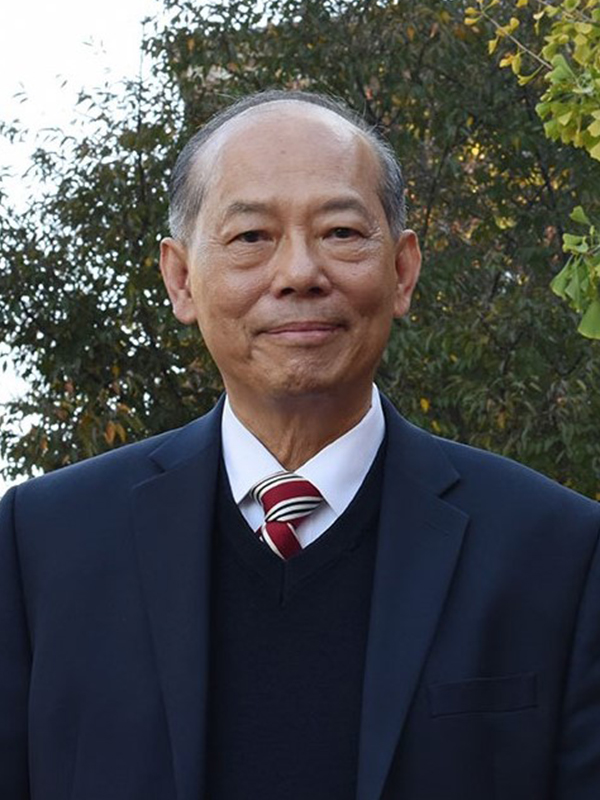Academician LEE Kuo-Hsiung
Academician LEE Kuo-Hsiung* (3rd COT Award Winner)


Affiliation at the time of the Award:
- Academician of Academia Sinica
- Kenan Distinguished Professor of Medicinal Chemistry
- Director of Natural Products Research Laboratories, Eshelman School of Pharmacy, University of North Carolina at Chapel Hill
Biography
Academician Kuo-Hsiung Lee received his B.S. in pharmacy from Kaohsiung Medical University, Taiwan in 1961, his M.S. in pharmaceutical chemistry from Kyoto University, Japan in 1965, and his Ph.D. in medicinal chemistry from University of Minnesota, Minneapolis in 1968. He also held the position of a postdoctoral scholar in organic chemistry at University of California, Los Angeles (UCLA) from 1968 to 1970.
Since 1970, Academician Lee has been a faculty member at the Eshelman School of Pharmacy, University of North Carolina at Chapel Hill (UNC-CH), first as Assistant Professor (1970-74), then as Associate Professor (1974-76), followed by Full Professor (1977-91), and finally as Kenan Distinguished Professor of Medicinal Chemistry, Endowed Chair (1992-present). He also served as Chairman of the Medicinal Chemistry and Natural Products Division from 1998 to 1999. He established the Natural Products Research Laboratories (NPRL) in 1983 and has been serving as its Director until now.
Throughout his research career, Academician Lee has focused on using medicinal chemistry-based methods to investigate Chinese herbal medicines with the aim of discovering and developing new drug candidates and new drugs. This work has made him a world-recognized leader in medicinal and natural products chemistry. With continuing grant support from National Institutes of Health (NIH) and other sources since 1971, his NPRL has studied over 190 Chinese herbal medicines and discovered several thousand novel bioactive natural products and their synthetic analogs, providing leads for new generation drug design against AIDS, cancer, and other diseases. His discoveries will undoubtedly lead to development of future pharmaceutical agents in the same manner that numerous previously discovered bioactive natural products (including ephedrine, taxol, and artemisinin) were developed as current pharmaceutical agents to treat cancers and other diseases. Using the most advanced natural products and synthetic medicinal chemistry coupled with cutting-edge life science technologies, including new computational techniques and new target-based and genomic evaluation methods, the novel lead compounds newly discovered by Academician Lee's research group will provide a solid foundation for developing potential chemotherapeutic drug candidates in the 21st century.
Academician Lee has over 45 years of experience in teaching in the pharmacy profession at graduate levels. In the Division of Medicinal Chemistry and Natural Products (now known as Chemical Biology and Medicinal Chemistry), he has been the graduate advisor of 38 Ph.D. and 7 M.S. graduate students. These students have gone on to gain prestigious appointments in both academia and industry. Academician Lee has also supervised over 190 postdoctoral fellows and visiting scientists. Totally each year, he supervises approximately 20-30 scientists, including graduate students, postdoctoral fellows, visiting scientists and professors.
Academician Lee also coordinates collaborative research projects with more than 60 active scientists/laboratories outside of UNC-CH, which gives his graduate and postgraduate students unique opportunities to interact with experts in numerous biological/mechanistic areas of medicinal and natural product chemistries, in addition to a strong foundation in synthetic medicinal chemistry as well as drug discovery and development that is the major focus of the NPRL.
Academician Lee's productive, internationally known research has resulted in more than 838 research articles and over 113 patents. He has given over 417 invited lectures and presentations, both in and outside of the US. He has also served as an editorial advisory board member of 28 journals, appointed as Chairman of Committee for the Promotion of Chinese Herbal Medicine Industry and Technology, Ministry of Economic Affairs of Taiwan (2000-2006) as well as Member of the Tang Prize in Biopharmaceutical Science Selection Committee of Academia Sinica (2013-2016).
Among Academician Lee's numerous awards and honors are the Lifu Academic Award for Chinese Medicine in 1994; election as Academician of Academia Sinica in 1996; the Outstanding Achievement Award, University of Minnesota in 1999; the Taiwanese-American Foundation Achievement Award in Science and Engineering in 2003; the Kitasato Microbial Chemistry Medal, Japan in 2005; the American Society of Pharmacognosy Norman R. Farnsworth Research Achievement Award in 2009; the Order of the Rising Sun, Gold Rays with Neck Ribbon from the government of Japan in 2011; the China 100 Distinguished Chinese Alumni Award, University of Minnesota in 2014; and the Ernest H. Volwiler Research Achievement Award, American Association of Colleges of Pharmacy in 2015. Academician Lee was elected as Fellow of the American Association of Pharmaceutical Scientists (1986), Fellow of the American Association for the Advancement of Science (1994), and Fellow of the American Society of Pharmacognosy (2010). He was also appointed as Honorary Professor, Shanghai Institute of Materia Medica, Chinese Academy of Sciences (1996); Honorary Advisor, Chinese Medicinal Material Research Centre, The Chinese University of Hong Kong (1999); Honorary Professor, Institute of Medicinal Plant Development, Chinese Academy of Medical Sciences (1999); as well as Chair Professor and Honorary Director of the Chinese Medicine Research and Development Center at China Medical University and Hospital, Taiwan (2010); and Chair Professor, College of Pharmacy at Kaohsiung Medical University, Taiwan (2011).
Academician Lee feels that medicinal chemistry is an art of combining chemistry and biology for drug discovery and development, and like the Chinese concept of Yin and Yang, Chemistry and Biology are complementary. The discovery of new bioactive compounds from Chinese herbal medicine depends on valid biological assays and targets, while new chemistry can make the discovery of new biological targets possible. Accordingly, he feels that research on Chinese herbal medicine is one of the most effective and efficient methods to discover new drugs.
* Deceased